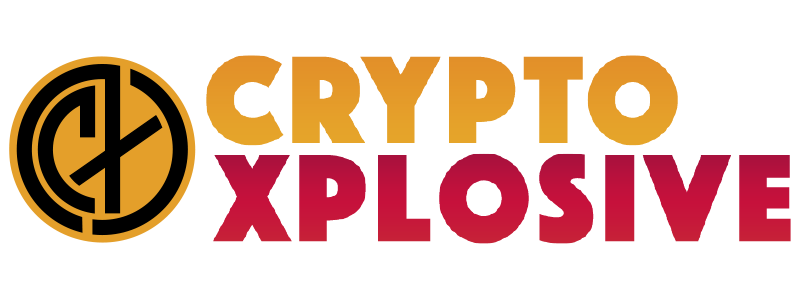World’s most valuable company under French antitrust fire

Nvidia recently overtook Microsoft as the world’s most valuable company and is now in the crosshairs of French antitrust regulators. The French authority is preparing to charge Nvidia with anti-competitive practices as part of the EU’s commitment to maintaining checks and balances within the industry.
This development underscores the EU’s resolve to ensure fair competition and prevent market dominance from stifling innovation and consumer choice. Let’s recall Nvidia’s meteoric rise to the pinnacle of the tech industry. Founded in 1993, the US-based giant has grown from a graphics chip manufacturer to a leader in AI, data centres, and autonomous vehicles. Its products power some of the most advanced computing systems in the world, and its influence extends across multiple industries.
Nvidia’s graphics processing units (GPUs) are essential for AI and machine learning applications, driving the next wave of technological advancement. This strategic positioning has catapulted Nvidia’s market valuation, surpassing tech giants like Apple and Microsoft.
However, with great power comes great responsibility—and scrutiny. According to recent reports, French antitrust regulators are poised to charge Nvidia with anti-competitive practices. The investigation centres on allegations that Nvidia has leveraged its dominant market position to stifle competition and maintain its supremacy in the tech industry.
The French authorities’ move is part of a broader trend of increasing regulatory scrutiny of tech giants worldwide. Governments and regulatory bodies are increasingly wary of companies like Nvidia’s outsized influence and market power. In Europe, where antitrust laws are particularly stringent, regulators are keen to ensure a level playing field and protect consumer interests.
Potential Implications
If the charges are upheld, Nvidia could face substantial fines and be forced to alter its business practices. Though potentially significant, the financial penalties might not be the most critical aspect of the investigation. The operational changes imposed on Nvidia could be more consequential, impacting its competitive edge and market strategy.
In short, the stakes are high for Nvidia. The company’s leadership in AI and other cutting-edge technologies relies on its ability to innovate and dominate the market. Regulatory constraints could slow its momentum and allow competitors to catch up. Moreover, the scrutiny could extend beyond France, prompting investigations in other jurisdictions and creating a ripple effect across the global tech industry.
Nvidia’s situation is not unique. Tech giants worldwide are facing similar challenges as regulators grapple with the complexities of the digital economy. In recent years, companies like Google, Amazon, and Facebook have also been targets of antitrust investigations and regulatory actions.
It points to a widening consensus on balancing innovation with fair competition. While tech companies drive economic growth and technological progress, their market dominance can threaten competition and consumer choice. Regulators are tasked with finding this balance, ensuring that the benefits of technological advancement are widely shared without stifling innovation.
To recall, in September 2023, French antitrust authorities raided unnamed companies believed to be indulging in anti-competitive practices related to graphics card products. While they did not name the company or identify it as Nvidia, the chipmaker has since confirmed that it is targeted by French courts, among other companies, regarding its business practices.
Nvidia said in a February filing that officials in the US, European Union, China, and the UK are also scrutinizing its operations. “Our position in markets relating to AI has led to increased interest in our business from regulators worldwide,” the chipmaker said.
In fact, according to a Bloomberg report, French antitrust authorities have already been conducting interviews with market participants regarding Nvidia’s key role in production price control due to an acute lack of chips and how it affects prices. “The office raid was designed to gather additional knowledge regarding possible anti-competitive practices.”
What is next for Nvidia and the French regulators?
It is more likely than not for Nvidia to mount a robust defence because the AI chip giant has consistently argued that its business practices are competitive and that its innovations benefit consumers and industries alike. Nvidia will likely emphasize its contributions to technological progress and economic growth, positioning itself as a driver of positive change rather than a monopolistic force.
However, public perception and regulatory interpretations can differ. Thus, the challenge for Nvidia is clear: to continue its trajectory of success while addressing the concerns of regulators and stakeholders. Ultimately, Nvidia’s response to this regulatory challenge could define its legacy as the world’s most valuable company, demonstrating whether it can uphold its leadership position while adapting to the evolving demands of a fair and competitive market.
See also: NVIDIA unveils Blackwell architecture to power next GenAI wave
Want to learn more about AI and big data from industry leaders? Check out AI & Big Data Expo taking place in Amsterdam, California, and London. The comprehensive event is co-located with other leading events including Intelligent Automation Conference, BlockX, Digital Transformation Week, and Cyber Security & Cloud Expo.
Explore other upcoming enterprise technology events and webinars powered by TechForge here.




Comments are closed, but trackbacks and pingbacks are open.